The problem with cooking and baking is some of it is ‘fly by the seat of your pants’ add a little of this or more of that but then, on the other hand, with some recipes, there’s no wiggle room for running-a-muck with random ideas and ingredients. So how’s a person to know when to do what… truth is it’s all trial and error. Which is pretty much life in general. So to keep you from having to experience my #failsinthekitchen I’m making a few lists to help keep you flourishing in the kitchen.
1. Thin, flat cookies? Better check your butter.
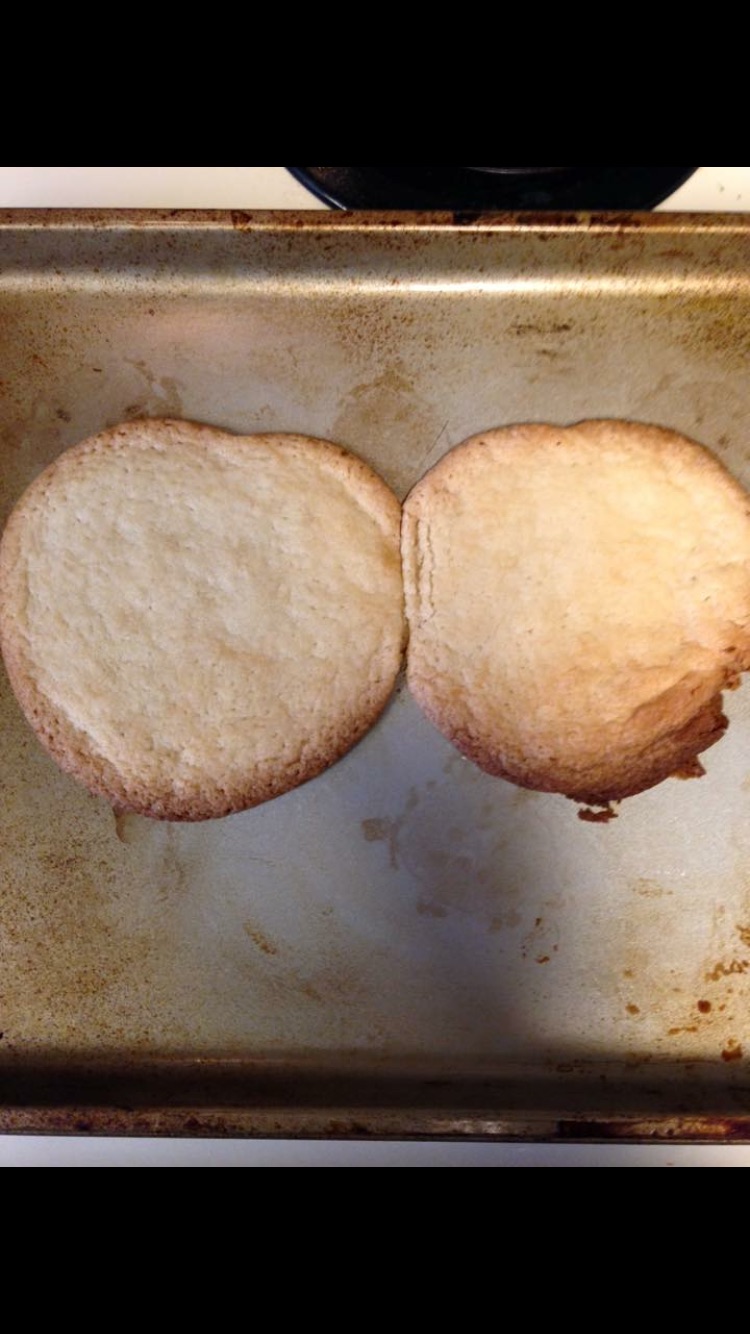
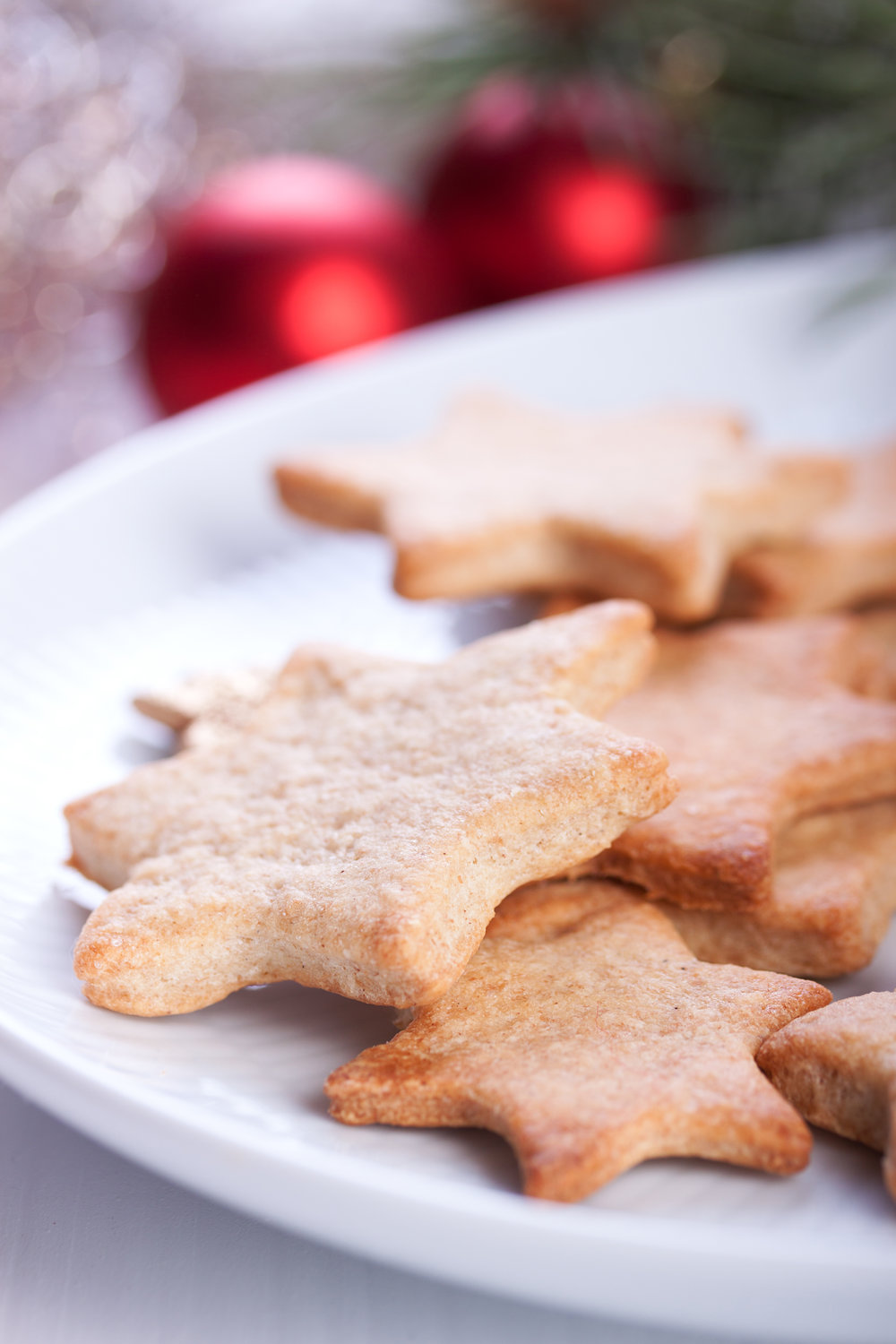
Remember when the recipe said to use cold butter? That’s a step you shouldn’t skip nor an ingredient to replace with a substitution. One time I ran out of butter (I know right? How does that EVER happen?) so I substituted margarine from the tub… huge mistake, never ever do this, the cookies won’t rise nor will they setup. You can still eat them but it will be with a spoon. Let the real, stick butter come to room temperature (but not warm) on its own. In between batches place the batter back in the fridge to keep the butter cool.
2. How do you keep pasta from clumping together?
First make sure you’re boiling the pasta in a large enough pot, in plenty of salted water and that you keep the water boiling. Second, don’t overcook the pasta. Follow the package instructions and taste along the way. Do NOT rinse after boiling unless you’re using it in a cold dish. Do NOT use olive oil unless you want your sauce to slip and slide right off the pasta. Instead, immediately after draining take a few spoonful’s of sauce and stir into the pasta. It doesn’t take much (unless you’re making a ton of pasta). What happens is the pasta is sticky (which is good) and holds onto the sauce, instead of itself. Plate the pasta and add additional sauce to everyone’s liking.
3. How do you keep fresh cut herbs fresh, longer?
Think of your fresh cut herbs as beautiful flowers (I do!). Trim the bottom, remove any low leaves from the stems and place the clean stems in a container with an inch or two of water. I like to use a mason jar or an empty tomato can and leave it out on my kitchen island. The herbs are a pretty decoration and easy to access as you’re cooking and prepping. If you can set the container in a location that gets a little natural sunlight that too will help as well as you need to change the water every 2 days.
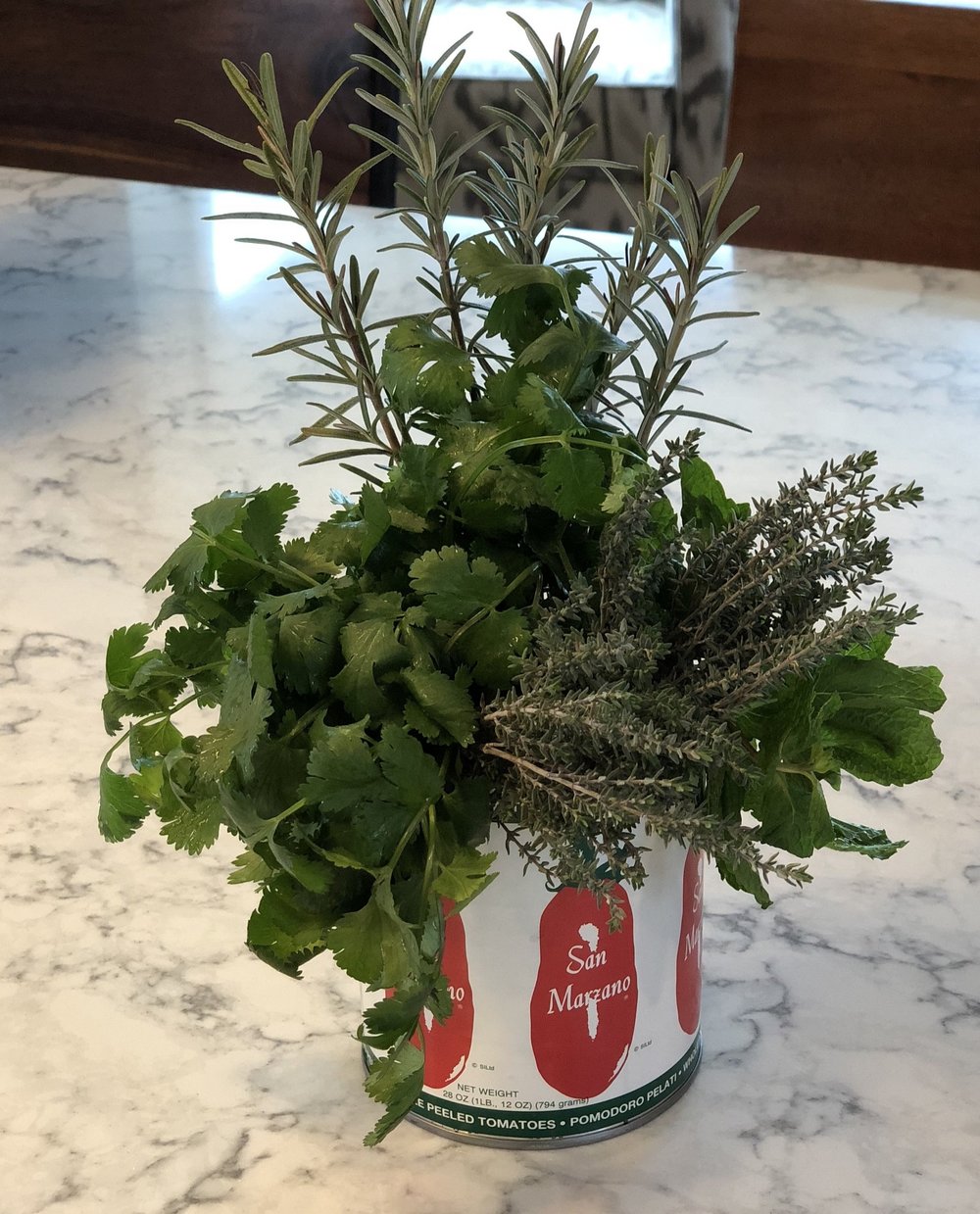
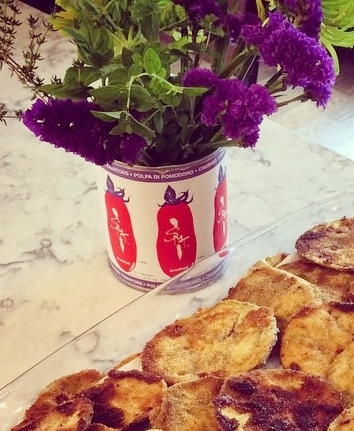
4. How to extend the life of your asparagus.
Life happens, friends call to go out for dinner and sometimes your well-laid plans for cooking dinner are derailed and you have fresh produce that needs to be eaten. Don’t fret the asparagus. Just like the herbs and your flower arrangements asparagus keeps longer if you trim the bottom of the stalk and place in jar or container with a small amount of water. Store in the refrigerator until your ready to prepare. No sweat, you’ll get a few more days.

5. How do you know if eggs are fresh?
A not so fresh egg will float in water. A fresh egg will feel heavy and sink to the bottom of a bowl of water. A less fresh egg will stand vertically in a bowl of water. Not sure, crack it open your nose will let you know if it’s rotten. *Note: older eggs are better for hard boiling (the shell will be easier to remove). And know that eggs keep for-ev-er in the fridge. I’ve used eggs 2 months past the sell date and they made just as tasty over-easy eggs as do the newly store bought.
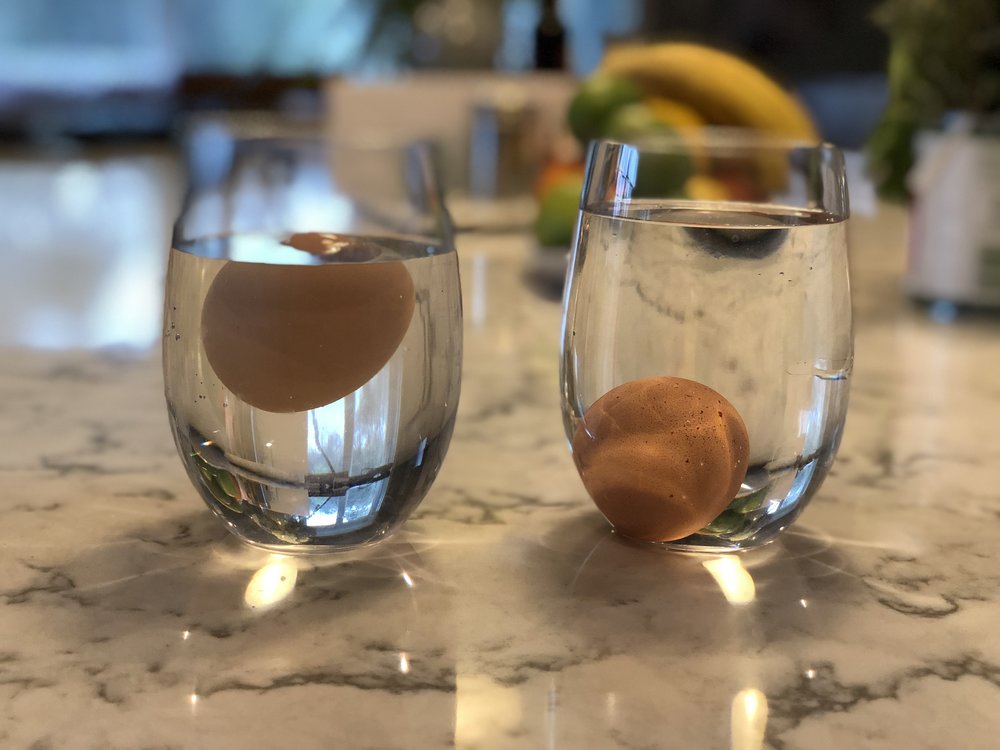
6. Can I substitute onion for shallot?
Maybe, in some instances, if you’re desperate and there’s no one to run to the store for you. I don’t recommend it cart blanche but I have done it and I’m sure I’ll do it again. However, there is a caveat; the substitution really only works if you will be cooking the onion. Raw shallot is popular in vinaigrette’s and cold salads, when sliced thin it’s delightful to eat uncooked and won’t kill your breath. If possible, use a red onion (for hot and cold applications) in place of a shallot, they have similar flavor profiles more so than yellow onions. But keep in mind shallots are sweeter and have much more flavor, so you don’t lose any flavor in your dish use shallot when you can.
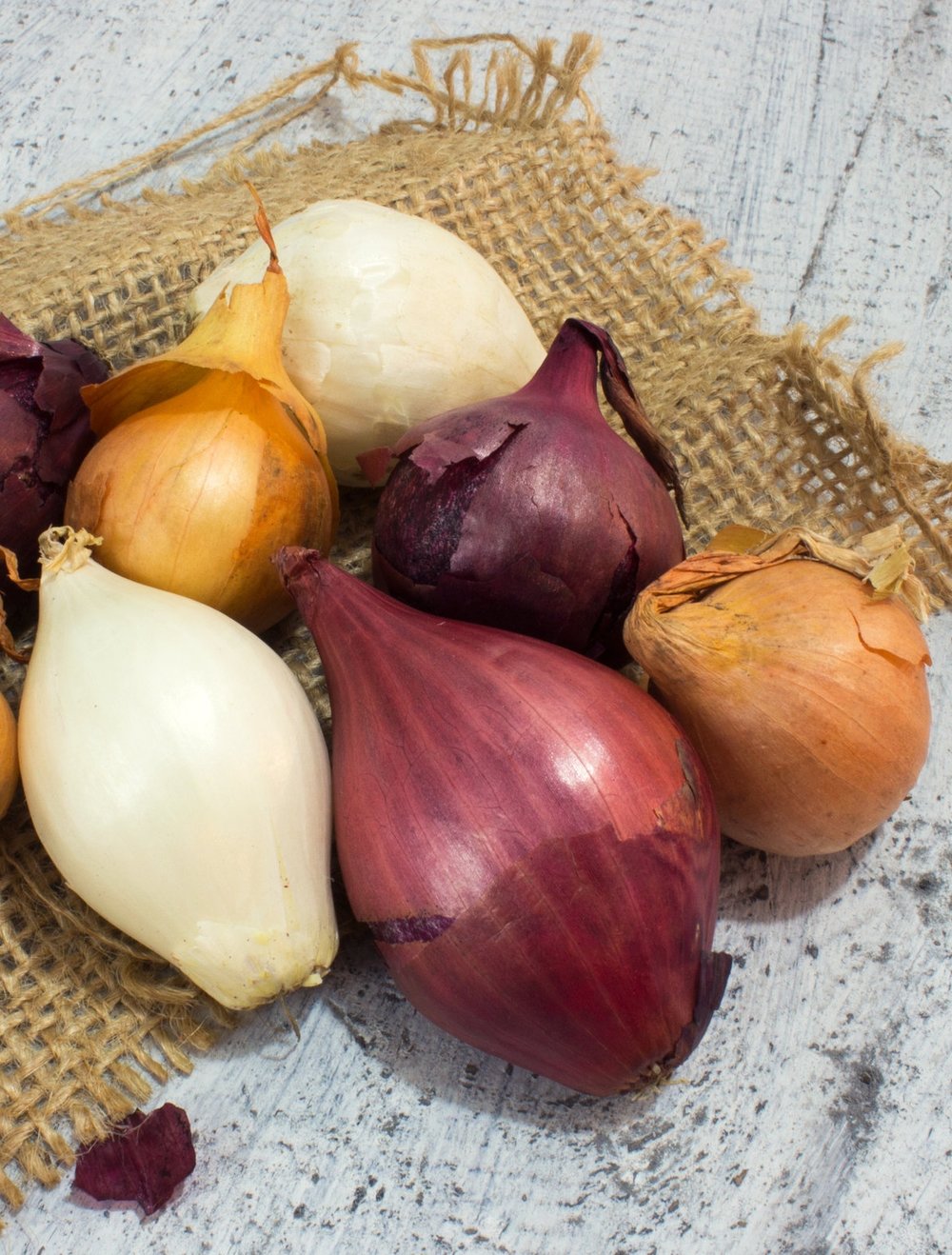
7. What spices should I keep on hand?
Note: This is a long list (I have a thing for spices) and it’s 100% based on my liking and my preferences, albeit they are fairly universal and found in a lot of recipes. But under no circumstances am I recommending you run out and buy any spices until you know you’re going to use it.

-
Kosher Salt – obvi, goes with just about everything
-
Black Peppercorns – again you need it with just about everything savory
-
Garlic Powder – I don’t think I’ve ever run out of GP, it’s like Franks Red Hot “I use that $hit on everything’. But seriously, soups, meats, bread, sauces, spice rubs…I could go on and on.
-
Bay Leaves – great for soups
-
cayenne pepper
-
crushed red pepper – adds a little or a lot of heat to any number of dishes.
-
cumin – can’t make chili without it.
-
Ground coriander
-
oregano – all your Italian dishes will thank you.
-
paprika – great with fish
-
rosemary – goes great with lemon to make a marinade for chicken and fish. It’s aromatics make the perfect topping for focaccia bread.
-
thyme leaves – this is one of my favorites. I sprinkle it on vegetables, meats, it’s the star of my Thanksgiving dressing and of course it goes in all my Italian dishes.
-
cinnamon
-
cloves
-
allspice
-
nutmeg – whole
-
chili powder
-
Italian seasoning
-
Ginger – ground – while it’s great for holiday baking and Asian dishes it goes bad quickly. For this reason, it’s at the bottom of the list.
8. Do spices really go bad?
Emphatically yes. Unfortunately. Even though the spices are dried and in what you would like to think are airtight containers, air does still get in. It’s not that the herbs really go bad as in spoil but they lose their flavor. And after you work so hard on a recipe and buy all those ingredients the last thing you want to do is have no flavor with old dried up spices. Do a smell test, if you open a container and can’t smell anything, it’s time to toss. Look at herb/spice, is it faded in color, also time to toss. Most dried herbs/spices will last around 4 years unless they have been exposed to constant, direct sunlight and/or a lot of heat. Keeping your spices/herbs in a cool dark place is best if it’s practical for your kitchen.


Leave a Reply